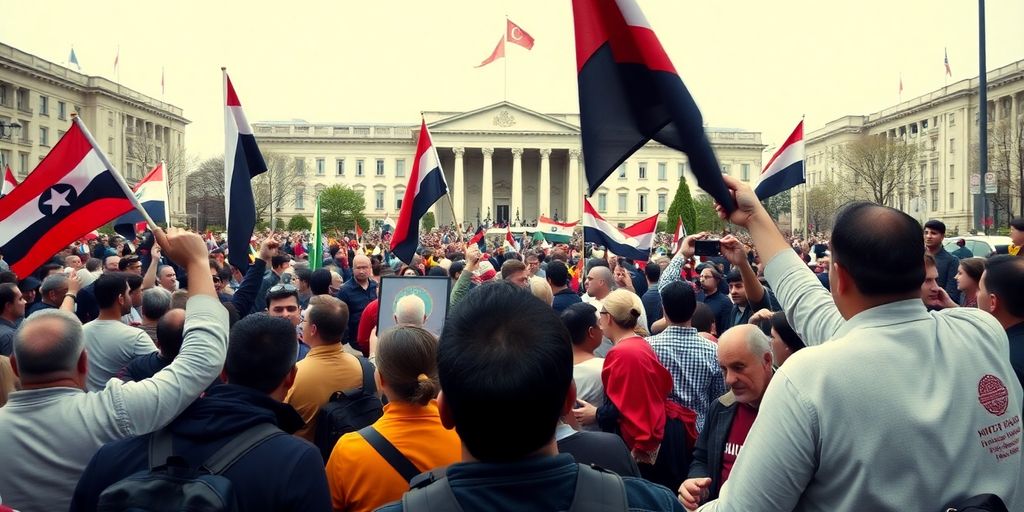Serbia has appointed a new government led by Djuro Macut, an endocrinologist with no prior political experience, amidst ongoing protests and pressure from the European Union. The new cabinet aims to address the political unrest that has gripped the nation since the resignation of former Prime Minister Milos Vucevic earlier this year.
Key Takeaways
- Djuro Macut elected as Prime Minister with 153 votes in favor.
- The new government includes 31 ministers, with many retaining positions from the previous administration.
- Protests continue as citizens demand accountability for a deadly railway station disaster.
- Macut emphasizes dialogue and stability while balancing EU relations and national interests.
New Leadership in Serbia
On April 16, 2025, Serbia’s parliament confirmed Djuro Macut as the new Prime Minister, following a tumultuous period marked by anti-corruption protests. The vote was largely a formality, given the ruling Serbian Progressive Party’s majority in parliament. Macut’s cabinet consists of 31 ministers, including 20 from the previous government, indicating a continuity in leadership despite calls for change.
In his inaugural address, Macut stated, "Serbia is tired of divisions and blockades," signaling a desire for unity and dialogue. He pledged to prioritize the functioning of educational institutions and to address the grievances of the youth who have been at the forefront of recent protests.
Ongoing Protests and Public Discontent
The political landscape in Serbia has been significantly influenced by protests that erupted after a tragic incident in November 2024, where a railway station canopy collapse resulted in 16 fatalities. These protests have evolved into a broader movement against perceived government corruption and incompetence.
- Key Issues Raised by Protesters:
- Demand for accountability regarding the railway disaster.
- Calls for an end to government pressure on dissenters.
- Requests for transparency in government operations.
Despite the formation of a new government, many citizens remain skeptical. Opposition leaders argue that the cabinet reshuffle does not address the root causes of public discontent and have called for a transitional government to pave the way for new elections.
Balancing EU Relations and National Interests
Macut’s government faces the challenge of navigating Serbia’s aspirations for EU membership while maintaining its traditional ties with Russia. In his address, Macut emphasized that Serbia’s reforms would be driven by national priorities rather than external pressures, stating, "Our reforms are not a response to EU requirements. They are a response to the needs of our citizens."
- Macut’s Key Foreign Policy Stance:
- Commitment to EU accession while asserting Serbia’s independence in policymaking.
- Acknowledgment of the Kosovo issue as a national priority, advocating for dialogue and peace.
Conclusion
As Serbia embarks on this new chapter under Prime Minister Djuro Macut, the government must address the pressing concerns of its citizens while balancing international expectations. The coming months will be crucial in determining whether the new administration can quell public unrest and foster a more stable political environment.
Sources
- Serbian parliament approves new gov’t led by Djuro Macut – World, China Daily.
- Serbia’s parliament appoints Djuro Macut as prime minister, Reuters.
- Serbia forms new government, expels top pro-Russian figure amid EU pressure, The Kyiv Independent.
- Serbia Approves New Government Led By Duro Macut, A Doctor, Radio Free Europe/Radio Liberty.
- Serbia elects new government led by Djuro Macut amid continued political unrest, Türkiye Today.






